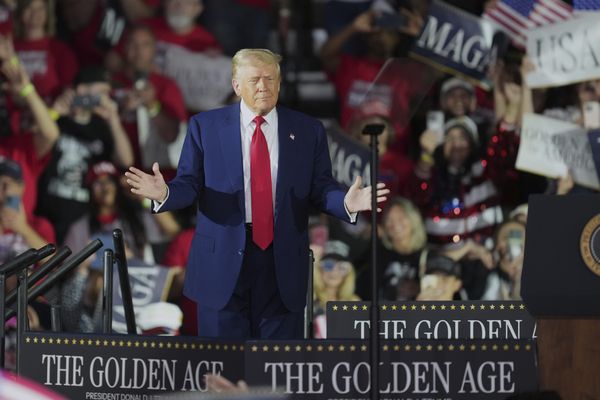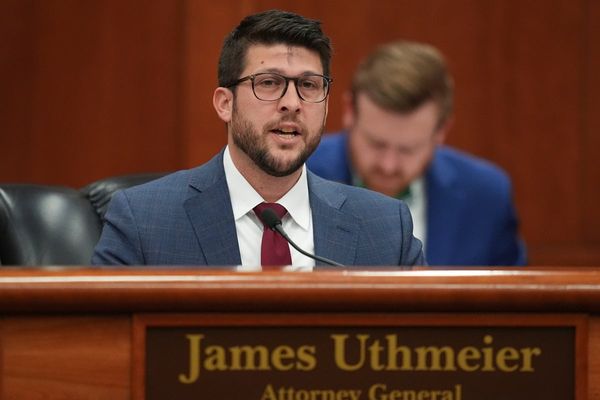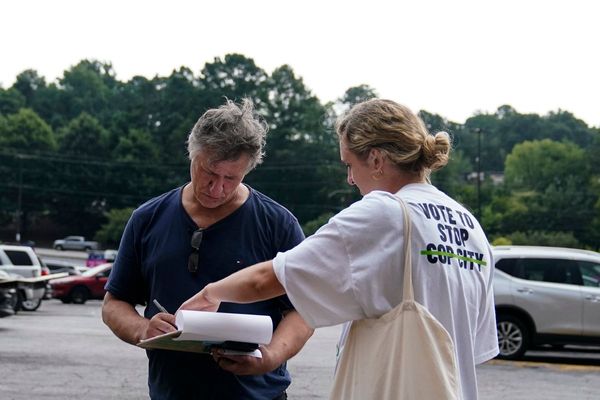Several student groups at UC Berkeley Law School have signed on to a pledge not to invite any speakers—speaking on any subject—if those speakers "have expressed and continued to hold views … in support of Zionism, the apartheid state of Israel, and the occupation of Palestine." Berkeley Dean Erwin Chemerinsky, a noted liberal constitutional scholar, has condemned that position, but also argued,
I followed this up with a message to the entire Law School community: "The First Amendment does not allow us to exclude any viewpoints and I believe that it is crucial that universities be places where all ideas can be voiced and discussed. In addition, the Law School has an 'all-comers' policy, which means that every student group must allow any student to join and all student group organized events must be open to all students." …
[N]o group has violated the Law School's policy and excluded a speaker on account of being Jewish or holding particular views about Israel. Such conduct, of course, would be subject to sanctions.
When I delved further into this, though, I came to the conclusion that the law school does not already forbid such "exclu[sions] of speakers on account of … holding particular views about Israel"; I've confirmed with Dean Chemerinsky that categorically excluding speakers based on their views on Israel—even when the event has nothing to do with Israel—wouldn't be punished under any current rules.
But could there be such a policy? Could a public university bar student groups from discriminating against speakers based on viewpoint in this way?
[1.] To begin with, private groups have the First Amendment right to choose whom to invite as speakers based on the speakers' views, even views unrelated to the particular event. I think Boy Scouts v. Dale makes that clear: The Boy Scouts had a First Amendment right to exclude Dale from being an Assistant Scoutmaster because
Dale, by his own admission, is one of a group of gay Scouts who have "become leaders in their community and are open and honest about their sexual orientation." Dale was the copresident of a gay and lesbian organization at college and remains a gay rights activist. Dale's presence in the Boy Scouts would, at the very least, force the organization to send a message, both to the youth members and the world, that the Boy Scouts accepts homosexual conduct as a legitimate form of behavior….
[W]e have found that the Boy Scouts believes that homosexual conduct is inconsistent with the values it seeks to instill in its youth members; it will not "promote homosexual conduct as a legitimate form of behavior." As the presence of [an Irish-American Gay, Lesbian, and Bisexual Group] in Boston's St. Patrick's Day parade would have interfered with the parade organizers' choice not to propound a particular point of view, the presence of Dale as an assistant scoutmaster would just as surely interfere with the Boy [Scouts'] choice not to propound a point of view contrary to its beliefs.
To be sure, Assistant Scoutmasters speak on behalf of the group, and invited speakers need not. But they are certainly part of the "message" that the group seeks to "send" with its events. Indeed, speakers are often invited precisely because their presence (as well as what they say) will send a particular message.
Moreover, groups are necessarily highly selective in many ways in the speakers they invite, and seek to create a coherent event with a particular message. Whatever rules there might be for shopping malls where visitors speak for themselves and not as part of the mall's message, or for universities where recruiters speak for themselves and not as part of the university's message, the First Amendment protects groups' ability to select those particular speakers they wish to invite to give the group's events the message that the groups seek to present.
[2.] This having been said, a public university may indeed impose reasonable and viewpoint-neutral restrictions on what groups do on university property or with university money, see Christian Legal Society v. Martinez. For instance, they can mandate that student groups can get such publicly provided benefits only if they have the "all-comers" policy that Dean Chemerinsky noted, even though private expressive groups on private property may pick and choose their members. They can mandate that student groups be democratically structured, or that their leadership be limited to students, even though private expressive groups on private property may of course organize themselves otherwise. And the list can go on.
A university therefore might be able to design a viewpoint-neutral rule that a student group may not discriminate based on viewpoint in its choice of speakers—but that would be a very strange rule indeed, since often you'd want to invite speakers precisely because of the views they present. (Indeed, even if you're trying to organize a debate, you'd be inviting speakers based on their conflicting viewpoints, and excluding speakers who viewpoints you see as too marginal, or for that matter too centrist.) Such a rule certainly wouldn't be practically viable, and indeed might be so counterproductive as to be not "reasonable" for constitutional purposes.
A university might instead have a rule that bars student groups from discriminating based on a speaker's viewpoint that's unrelated to the topic the speaker is discussing. That might be more reasonable, but it might be harder to implement in a viewpoint-neutral way, since what counts as "unrelated" may often be a contested matter of degree, and would often turn on one's perception of the speaker's viewpoint.
But beyond that, would a university really want to have such a rule? It seems to me that lots of groups could reasonably not want to invite speakers whose views they find sufficiently repugnant—Nazis, or Communists, or other supporters of violent revolution or riots and the like—even if they're speaking on topics far afield from those views.
More broadly, say a pro-gay-rights group prefers not to invite opponents of gay rights (regardless of what topics they're discussing), or a traditionalist Catholic group prefers not to invite supporters of abortion rights or same-sex marriage, or for that matter a Jewish group prefers not to invite people who endorse the Hamas Covenant's statement that "The Day of Judgement will not come about until Moslems fight the Jews (killing the Jews)." That seems a plausible choice for those groups to make in shaping what is after all an event that they are organizing, and that they hope will appeal to their audience. And while such a choice may in some situations be condemned as closed-minded, I doubt that a school would want to foreclose such choices.
[3.] What's going on in the opposition to the "no pro-Israel speakers" policy, I think, is the judgment that pro-Israel viewpoints are different from the other viewpoints I describe: They aren't as repugnant or extreme as Nazi or Communist viewpoints, and they would be chosen by groups whose ostensible purposes are quite far removed from the Israeli-Palestinian dispute. And I share that judgment.
But I don't think that a university can implement that judgment into a constitutionally permissible rule, precisely because it's a fundamentally viewpoint-based judgment: some viewpoints are so bad (or so inconsistent with a group's purpose) that it's fine for groups to exclude speakers who hold them, but others aren't.
We legitimately make such viewpoint-based judgments in various situations in our daily lives. (I hope we wouldn't cut out friends from our lives, for instance, just because we disagree with them on various subjects, but we well might if they start talking about how we should kill Jews or capitalists or gays or police officers.) Yet a public university can't implement such a viewpoint-based rule. It would either have to ban all viewpoint-based exclusion of speakers (regardless of the speakers' viewpoint), or allow groups to engage in such exclusions.
[4.] So what's the remedy? I think we're seeing it, and it's publicity. It's important for Jewish students, and for Jews more broadly, to understand the breadth and shape of opposition to Israel among various other groups—including groups that many of those Jews might otherwise see as potential political allies. That a group is willing to exclude a vast range of American Jews as speakers, including many who are on the Left (even far Left) and may well agree with the great bulk of the group's agenda, is an important data point that people should know about the group. (Here, those groups are Berkeley Law Muslim Students Association, Middle Eastern and North African Law Students Association, Womxn of Color Collective, Asian Pacific American Law Student Association, Queer Caucus, Community Defense Project, Women of Berkeley Law, and Law Students of African Descent.) Of course, those groups don't necessarily speak for all students whose identities they invoke, or even for all their members. But they do speak, presumably, for their leaders, and if the project gains steam, there'll be other groups whose leaders' positions will thus become clear.
Indeed, my sense is that American Jewish support for Israel stems in part from the view that Jews need a place where they will always be welcome, even when other places turn against them. "Home is the place where, when you have to go there, they have to take you in." Apparently even many ostensible allies and supporters of "diversity, equity, and inclusion" would be willing to boycott what is likely the great majority of Jewish speakers. ("Caring about Israel is 'essential' to what being Jewish means to 45% of U.S. Jewish adults, and an additional 37% say it is 'important, but not essential'"; that seems likely to be highly correlated with "support of Zionism" or support of Israel.) That may well lead move some American Jews more towards the view that alliances with various non-Jewish groups can be dicey and evanescent, and that it's more important to support fellow Jews (and a Jewish country) than to rely on such alliances.
Sometimes "the fitting remedy for evil counsels is good ones" (to quote a famous Jew) because good ideas are the best way (however imperfect it may be) to rebut bad ideas. But sometimes the good counsel can consist of exposing the evil counsel, and giving us a better sense of what the evil counsel's advocates really think, so we can more effectively decide what is needed to protect ourselves and those we care about.
The post Could a Public Law School Stop Student Groups from Excluding Speakers Based on Their Support of Israel? appeared first on Reason.com.







